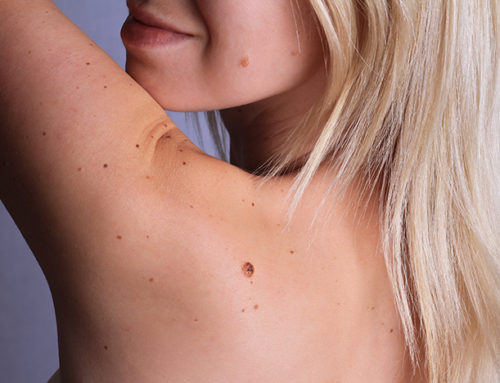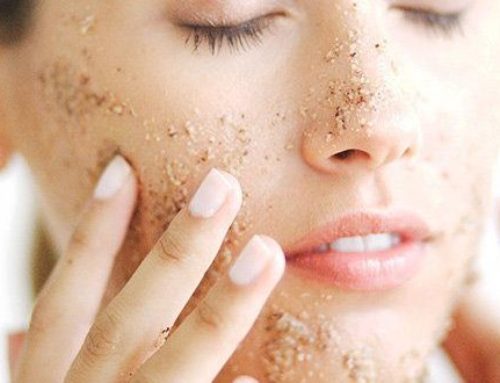Effective Tips for Oily Skin: Causes, Solutions & Skincare Routine
Introduction
In this article we’ll explore effective tips for combatting oily skin. Dealing with excessive shine, enlarged pores, and frequent breakouts can be challenging, but with the right approach and skincare routine, you can transform your skin and achieve a balanced, radiant complexion. From understanding the causes of oily skin to incorporating the best products and remedies into your daily regimen, we’ve got you covered with valuable information and expert advice to help you embrace a healthier, clearer complexion.
Understanding Oily Skin: Causes and Solutions
Oily skin is often caused by genetics and hormonal changes, leading to an overproduction of sebum. This can result in a shiny complexion and enlarged pores. To combat this, daily cleansing with a gentle, non-abrasive cleanser can help control oiliness without stripping the skin of its natural moisture. Exfoliating regularly can prevent clogged pores and reduce the appearance of oily skin by removing dead skin cells and excess oil. Additionally, incorporating a lightweight, oil-free moisturizer into your skincare routine can help balance oil production while keeping the skin hydrated, ultimately leading to a more balanced complexion.
Daily Skincare Routine for Oily Skin
In the morning and before bed, start your skincare routine with a gentle cleanser to effectively remove excess oil and impurities from your face. Incorporating a salicylic acid-based toner into your daily regimen can help in unclogging pores and controlling oil production. An oil-free moisturizer with hydrating ingredients like hyaluronic acid is essential for keeping your skin moisturized without adding extra shine. To tackle excess oil and minimize the appearance of enlarged pores, consider using a clay mask once or twice a week for a refreshed and balanced complexion.
Diet and Oily Skin: What to Eat and Avoid
Incorporating foods rich in omega-3 fatty acids, such as salmon and flaxseeds, can be beneficial for controlling oil production in the skin. These foods can help balance sebum levels and promote a more balanced complexion. On the other hand, it’s important to avoid consuming too much sugar and processed foods, as they can worsen oily skin by causing insulin spikes. Instead, including plenty of fruits and vegetables in your diet can make a positive impact on your skin health, as their antioxidants can help combat inflammation and improve overall skin health. Additionally, steering clear of high-glycemic foods like white bread and sugary snacks is essential, as they can lead to increased sebum production, exacerbating oily skin concerns. By making mindful dietary choices, you can effectively support your skincare efforts and promote a healthier skin environment.
Best Products for Managing Oily Skin
Using a gentle foaming cleanser is a great way to start your skincare routine, as it effectively removes excess oil and impurities without stripping the skin of its natural moisture. Look for non-comedogenic moisturizers that are oil-free and lightweight, as they can hydrate the skin without clogging pores, ultimately supporting your efforts to combat oily skin. Additionally, incorporating salicylic acid-based exfoliants can be beneficial in unclogging pores and reducing excess oil production, which helps prevent breakouts and promotes a clearer complexion. When it comes to absorbing excess oil and impurities, incorporating a clay mask into your skincare routine can leave the skin looking matte and refreshed, making it an effective addition to your routine for combatting oily skin.
Natural Remedies for Balancing Oily Skin
Incorporating witch hazel into your skincare routine can work wonders for combatting oily skin. Its astringent properties help reduce excess oil and inflammation, leaving your skin feeling refreshed and balanced. Additionally, using a clay mask once or twice a week can effectively absorb excess oil and impurities from the skin, promoting a clearer complexion. For a soothing and hydrating boost, consider applying aloe vera gel to your oily skin. Its moisturizing benefits can help without clogging pores. Moreover, consuming omega-3 fatty acids through foods like salmon or flaxseeds can play a key role in regulating oil production in the skin, ultimately supporting your skincare efforts from within.
Understanding Oily Skin: Causes and Solutions
Oily skin can often be attributed to an overproduction of sebum, the skin’s natural oil produced by the sebaceous glands. Genetic factors can also play a significant role in the development of oily skin, as it can be inherited from one or both parents. When combatting oily skin, using non-comedogenic skincare products is essential to prevent clogging pores, while regularly cleansing the skin with gentle, oil-free cleansers can effectively remove excess oil without depriving the skin of its natural moisture. By understanding the causes and incorporating effective solutions, it’s possible to manage oily skin and promote a more balanced complexion.
Daily Skincare Routine for Oily Skin
When it comes to combatting oily skin, using a gentle cleanser with salicylic acid can be incredibly beneficial in unclogging pores and controlling oil production. This helps prevent breakouts and promotes a clearer complexion. Additionally, applying a lightweight, oil-free moisturizer can keep the skin hydrated without adding excess oil, supporting your efforts to balance oily skin. It’s also important to incorporate a mattifying sunscreen with at least SPF 30 to protect the skin from sun damage without making it greasy, ensuring overall skin health. And for a refreshing boost, considering using a clay mask once or twice a week can effectively absorb excess oil and impurities from the skin, leaving it looking matte and revitalized.
Diet and Oily Skin: What to Eat and Avoid
Incorporating omega-3 fatty acids from sources like fish and flaxseeds into your diet can play a crucial role in regulating oil production in the skin, ultimately supporting your efforts to manage oily skin. Additionally, opting for whole grains and complex carbohydrates with a lower glycemic index can help maintain balanced blood sugar levels, which in turn can positively impact oil production. It’s also important to be mindful of excessive dairy consumption, as it may contribute to increased sebum production and clogged pores. Furthermore, limiting the intake of high-sugar and high-fat foods is essential, as they can lead to inflammation and exacerbate oily skin conditions. By making informed dietary choices, you can effectively support your skincare efforts and promote a healthier, more balanced complexion.
Best Products for Managing Oily Skin
When it comes to combatting oily skin, look for oil-free moisturizers that contain ingredients like hyaluronic acid to hydrate the skin without adding excess oil. Additionally, consider using a salicylic acid cleanser to help exfoliate and unclog pores, reducing the appearance of oily skin. Incorporating a mattifying primer into your makeup routine can help control shine and minimize the look of large pores, while using a clay mask once or twice a week can effectively absorb excess oil and impurities from the skin, leaving it looking matte and revitalized. These simple yet effective tips can make a significant difference in managing oily skin and promoting a more balanced complexion.
Natural Remedies for Balancing Oily Skin
Transforming your skin and combatting oily skin doesn’t have to be complicated. With the right natural remedies and dietary choices, you can effectively manage excess oil production and minimize the appearance of pores. Incorporating witch hazel as a natural astringent can help control oil and minimize pores, while clay masks can absorb excess oil and impurities, leaving your skin feeling refreshed. Additionally, applying aloe vera gel can provide soothing hydration without clogging pores, and maintaining a balanced diet rich in fruits, vegetables, and omega-3 fatty acids can contribute to healthier, more balanced skin. These simple yet effective tips can make a significant difference in managing oily skin and promoting a more balanced complexion.
Frequently Asked Questions
Are there any lifestyle changes that can help with oily skin?
Maintaining a healthy diet rich in fruits, vegetables, and lean proteins can work wonders for improving oily skin. The antioxidants found in these foods can combat inflammation and promote overall skin health. Regular exercise is also key, as it promotes healthy circulation and reduces stress levels, contributing to improved skin health. Additionally, adequate hydration is crucial, as it helps regulate oil production and keeps the skin balanced. Lastly, adopting a consistent skincare routine tailored to oily skin, including gentle cleansing and non-comedogenic products, can make a notable difference in managing oily skin and promoting a healthier complexion.
What causes oily skin?
Oily skin can be attributed to a variety of factors, including genetics and hormonal changes that trigger an overproduction of sebum by the sebaceous glands. Additionally, environmental conditions like high humidity and heat can further stimulate the sebaceous glands, exacerbating oily skin concerns. It’s important to avoid harsh or drying skincare products that can prompt the sebaceous glands to produce even more oil to compensate for stripped natural oils. Moreover, dietary choices play a role, as consuming a high-glycemic diet can spike insulin levels and lead to increased oil production in the skin. Understanding these contributing factors can help in effectively addressing and managing oily skin concerns.
How can I determine if I have oily skin?
Excessive shine on the face, particularly in the T-zone area, is a telltale sign of oily skin. This can often lead to a frequent occurrence of blackheads and whiteheads on the nose, chin, and forehead, making it clear that oily skin is a concern. If you find that your makeup tends to slide off easily or you’re constantly blotting your face, these could also be signs that your skin type leans towards oiliness. Another indicator to look out for is skin that appears greasy shortly after cleansing, affirming the presence of oily skin and the need for targeted skincare solutions.
What skincare products are effective for combatting oily skin?
When it comes to combatting oily skin, incorporating oil-free moisturizers into your skincare routine is crucial. Look for moisturizers that won’t clog pores or contribute to excess oil production, helping to keep your skin balanced and hydrated. Additionally, consider incorporating salicylic acid or benzoyl peroxide cleansers to effectively control oil and prevent breakouts. These ingredients can work wonders in keeping your skin clear and oil-free. To tackle excess oil and shine, add a clay mask to your routine once or twice a week for a refreshed and balanced complexion. Lastly, including a gentle, non-abrasive exfoliator in your regimen can help remove dead skin cells and reduce the appearance of oiliness, leaving your skin looking fresh and revitalized.
Should I avoid certain foods or habits to reduce oily skin?
Establishing a consistent skincare routine is key to effectively combatting oily skin without the need for drastic dietary changes. Incorporating gentle cleansing and using non-comedogenic products can help maintain a balanced complexion. Additionally, limiting dairy products and sugary snacks may contribute to reducing oily skin by minimizing sebum production. Avoiding excessive alcohol consumption can also be beneficial for managing oily skin as it prevents dehydration, which can lead to overcompensation in oil production. Consuming a diet high in processed and fried foods can exacerbate oily skin due to the excess oil production triggered by these foods, making it important to be mindful of dietary choices to support your skincare efforts.
Are there any lifestyle changes that can help with oily skin?
Maintaining a balanced diet rich in fruits, vegetables, and lean proteins can play a crucial role in regulating oil production in the skin. Additionally, incorporating regular exercise into your routine can promote healthy circulation and reduce stress, which may contribute to oily skin. Getting an adequate amount of sleep each night is essential for overall skin health and can help minimize oiliness. Staying hydrated by drinking plenty of water throughout the day can also assist in balancing oil production and keeping the skin hydrated, supporting your efforts to combat oily skin and promoting a healthier, more balanced complexion.
What causes oily skin?
Oily skin can often be attributed to genetics and hormonal changes, as these factors can lead to an overproduction of sebum. Additionally, certain medications like birth control pills or hormone replacement therapy can contribute to oily skin, emphasizing the need for tailored skincare routines. Furthermore, humid weather and excessive heat can stimulate the sebaceous glands to produce more oil, ultimately resulting in oily skin. It’s essential to be mindful of using skincare products that strip the skin of its natural oils, as this can lead to rebound oil production and exacerbate oily skin conditions.
How can I determine if I have oily skin?
Oily skin is often characterized by a shiny complexion, especially in the T-zone (forehead, nose, and chin), and people with this skin type may experience frequent breakouts and enlarged pores due to excess oil production. If your skin feels greasy shortly after washing, it’s likely that you have oily skin, and using blotting papers on your face throughout the day can help assess if you have excessive oil production. Understanding these characteristics can help you effectively manage and combat oily skin to promote a more balanced complexion.
What skincare products are effective for combatting oily skin?
When it comes to combatting oily skin, there are several effective strategies for managing excess oil and promoting a more balanced complexion. Look for oil-free moisturizers with ingredients like hyaluronic acid to hydrate the skin without adding excess oil. Additionally, incorporating a gentle exfoliating cleanser with salicylic acid can help unclog pores and remove excess oil, promoting clearer skin. Consider using a mattifying primer to control shine and keep oily areas looking more balanced throughout the day. And for a weekly refresh, try using a clay mask to absorb excess oil and impurities, leaving your skin feeling revitalized and less greasy. These simple yet effective tips can make a significant difference in managing oily skin.
Should I avoid certain foods or habits to reduce oily skin?
To reduce oily skin, making informed dietary choices can make a significant impact. Consider avoiding high glycemic index foods like white bread and sugary snacks, as they can contribute to oil production. Limiting dairy products and incorporating more fruits and vegetables into your diet can also help in reducing oily skin. Additionally, it’s important to avoid excessive use of harsh skincare products or over-washing your face, as this can lead to increased oil production. Moreover, consider avoiding smoking and excessive alcohol consumption, as they can exacerbate oily skin conditions. By being mindful of these factors, you can effectively support your skincare efforts and promote a healthier, more balanced complexion.
Conclusion
In conclusion, managing oily skin requires a comprehensive approach that includes both external skincare practices and internal dietary choices. By understanding the causes of oily skin and incorporating a daily skincare routine tailored to address excess oil production and pore congestion, you can effectively combat oily skin and achieve a more balanced complexion. Additionally, making mindful dietary choices, such as including omega-3 rich foods and avoiding high-glycemic options, can further support your skincare efforts. Leveraging effective skincare products and natural remedies, such as witch hazel and aloe vera, can provide additional support in balancing oil levels and promoting a clearer, healthier complexion. With these tips and strategies, you can transform your skin and effectively manage oily skin concerns.






